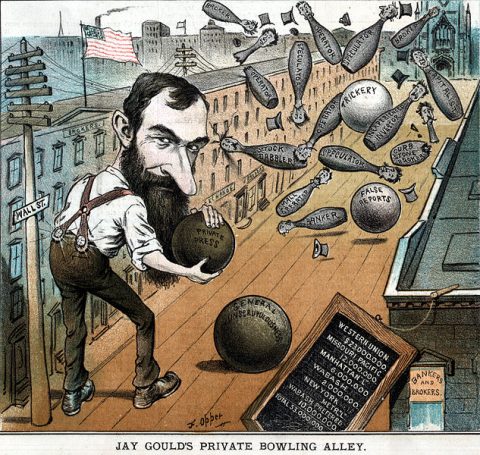It is amazing how a small circumstance can in a trice overturn a mood from one of equanimity to one of anxiety and irritation. What most upset me was the thought of having to deal with the British bureaucracy in order to obtain some kind of travel document or other. I could just see in my mind’s cinema the drab room in the consulate where a minor official, who hated his work and was thoroughly bored with and disgusted by the procession of incompetents, liars, and con men who day after day appeared before him claiming that their case was particularly urgent or in some way deserving of his special attention, eked out his miserable existence, praying every day for the time of closure of the consulate to approach quickly rather than at its usual snail’s pace. Nominally, of course, he was the servant of the citizenry whose taxes paid his salary, but drawing this to his attention would only have slowed him down and made him more determined than ever to draw out the agony of the scum with whom he had always to deal. The fact is that no Middle Eastern or Central Asian peasant at the diwan of the potentate’s vizier was ever more a powerless petitioner than is the average Western citizen in a situation such as this. The citizen is nothing and the bureaucrat is everything.
I had all kinds of documents with me to prove that I was the person I said I was, namely me; besides which, it was surely obvious, even to the most casual observer, that I was a respectable citizen not given to obtaining travel or other documents by false pretensions. But these days we live under a regime, if not exactly of laws rather than of men, at least of regulations rather than of men, and an official such as the one with whom I would have to deal would be allowed to exercise no discretion in case he thereby revealed his social prejudices. “Let justice be done though the heavens fall,” said Cicero, which we have changed to “Though the heavens fall, let the forms be filled and the boxes ticked.”
To do my imaginary official justice, I would have behaved just like him if our positions had been reversed. There are many jobs whose sole pleasure or delight must be in disobliging the public. Bureaucrats are themselves so oppressed by bureaucracy that their only way of finding relief is to make others suffer like them. The wonder, then, is not that they are bad, but that they are not worse.
Theodore Dalrymple, “The Bureaucrat’s Point of View”, Taki’s Magazine, 2018-05-12.
February 22, 2023
QotD: The soul of the bureaucrat
January 5, 2023
Trudeau’s government has paid 30 times as much to consultants McKinsey and Company as the Conservatives did
Paul Wells on the amazing profit margins McKinsey and Company must be making thanks to their booming business with the Canadian federal government under Justin Trudeau:
From Radio-Canada, and not yet translated into English at this hour, comes news that the Trudeau Liberals have paid 30 times as much to the global consulting firm McKinsey and Company as the Harper Conservatives did, even though the Liberals have so far spent less time in office than the Conservatives did.
That’s $2.2 million in nine years under Harper, against $66 million in seven years under Trudeau.
And this chart, which I’ve taken from the Rad-Can report, shows the recourse to McKinsey is accelerating: the company’s take from the feds last year was almost as much as its combined take from all previous years.
Rad-Can reporters Romain Schué and Thomas Gerbet write: “What was the firm’s precise role? It’s impossible to know for sure. [McKinsey] refused to answer our questions … And despite our requests, Ottawa didn’t want to share the reports the firm produced.”
This is only the latest evidence of a massive trend in government in Canada’s federal government, in many provinces, and abroad: the contracting-out of complex problems to private firms that charge a premium; are never around when problems arise later; often produce work of questionable quality; and are too often exempt from even the minimal transparency and accountability that’s expected of work done in-house by the regular public service.
We’re seeing that latter point play out in a Commons committee’s attempts to find out how the ArriveCan app came to cost so much. The app was developed by outside contractors (not McKinsey — today’s Rad-Can story is about McKinsey but the use of contractors benefits many firms), and MPs seeking details have so far received only shrug emojis from the Trudeau government.
This increasing resort to secretive external consultancies impoverishes public discussion about ideas for the future. It is brutally demoralizing to the professional public service, which means it pays nasty dividends by making public-service worse ever less attractive to talented people. It allows timid elected officials to buy a backbone, in the form of a commissioned study supporting their preferred option, and the only cost is the burden on public finances, which elected officials plainly soon learn not to worry about.
December 22, 2022
The Emulsified High-Fat Offal Tube | Yes, Minister: 1984 Christmas Special | BBC Comedy Greats
BBC Comedy Greats
Published 26 Jul 2021Bernard (Derek Fowlds) walks Jim Hacker (Paul Eddington) through the red-tape of signing his Christmas cards, but Jim Hacker is more concerned with worrying plans from Brussels to rename the British sausage.
(more…)
September 5, 2022
QotD: Why bureaucracies are inherently slow
It is important to remember that all government law enforcement agencies are bureaucracies. And all bureaucracies have certain behavioral tendencies owing to their institutional structure and the incentives that structure generates.
The great economist Ludwig von Mises analyzed these tendencies and incentives in his 1944 book Bureaucracy.
In that book, Mises identified “slowness and slackness” as among the inherent features of government bureaucracy that no reform can remove.
We have all experienced the “slowness and slackness” of government bureaucracy: with the post office, the DMV, the public school system, etc. That’s why the animated movie Zootopia had sloths working at the DMV and everyone got the joke. And police bureaucracies are no exception to this reputation.
Why is this so? In part, it is due to another indelible feature of bureaucracy: that it is, as Mises wrote, “bound to comply with detailed rules and regulations fixed by the authority of a superior body. The task of the bureaucrat is to perform what these rules and regulations order him to do. His discretion to act according to his own best conviction is seriously restricted by them.”
Sometimes a delay is simply due to the fact that the government employee is too tied up in red tape to respond in a timely manner. The timely response may be outright prohibited by the rules. Or the delay may be owing to Kafkaesque procedural mazes that first must be navigated or chains of command that must be climbed for permission.
[…]
Again, Mises considered such features of bureaucracy to be unreformable. Why? He argued that it is the only way that a government bureaucracy can be made at all accountable to the public. A bureaucrat with a free hand is even more dangerous than a bureaucrat with his hands tied.
“If one assigns to the authorities the power to imprison or even to kill people,” Mises wrote, “one must restrict and clearly circumscribe this power. Otherwise the officeholder or judge would turn into an irresponsible despot.”
Dan Sanchez, “How Bureaucracy May Have Cost Lives in Uvalde”, Foundation for Economic Education, 2022-05-31.
August 17, 2022
QotD: Larry Correia’s proposal for a DoFYJS
A well known, yet denied, truth is that most government employees are entrenched and don’t do shit. They’re utterly useless.
Depending on the department you could fire a ton of them and all it would do is free up parking spaces.
Now, there are some government employees who work their asses off. Good. There are some government functions which are necessary. Great.
A great many don’t work, or the work they do is utterly pointless.
Ask any honest gov employee. They will admit this to you in private.
If they say no, everything we do is vital and everyone here is vital, they’re a liar protecting their budget, or one of the useless ones.
Most places, if there are 5 employees, 2 do 90% of the work.
Pournelle’s Iron Law says that as it grows over time any bureaucracy’s purpose will change from its original mission, to a new mission of protecting and growing the bureaucracy.
So now our Department of Labor by itself is bigger than LBJ’s entire federal government. This stuff never shrinks. It only grows. It’s an endless Leviathan.
The Leviathan needs to grow and protect itself against all threats, which is how you get super evil shit like the CIA and FBI meddling in US elections …
Or constantly expanding its powers into new places, like the #MinistryOfTruth
This Leviathan will find allies which help it expand in size and power. The more power/money you give it, the more it can bribe and co-opt other institutions. Academia, media, corporations, etc.
Whichever political philosophy is the most unprincipled will rock this arrangement
As the Leviathan grows in power, it will become more malicious, spiteful, and controlling. Dissent is crushed. Freedom dies.
@elonmusk is currently a speed bump in this, which is why the control freak contingent is super pissed at him.
The big question is, do the people own their government, or does the government own its people? If we are just assets of the gov, we can be spent freely, and bad assets get eliminated.The Leviathan is compelled to own EVERYTHING.
Slowing the Leviathan down isn’t enough. If you concentrate on stopping one part, others keep growing. Then when our bipolar country elects a new leader, those parts start growing again. Repeat forever. And it just keeps getting bigger.
So we’ve got to shrink the whole thing
If the GOP had a brain/spine (lol) they’d slash the shit out of everything. They’d starve the beast. They usually don’t, because they are total chickenshits. They’ll pay lip service to this, do nothing, or feed their favorite parts.
The DNC gleefully feeds the whole thing.
Trump’s biggest weakness was he surrounded himself with people who loved government, and loved expanding government. Of course all of those fucked him at every opportunity.
We need somebody who actively HATES the government to run it.
If I was President (ha!) I would only create a single new executive branch entity. The Department of Fuck Your Job Security.
The DoFYJS would consist of surly auditors, and their only job would be to go into other government agencies to figure out-
A. do you fuckers do anything worth a shit?
B. which of you fuckers actually get shit done?Then fire everyone else.
Right now it is pretty much impossible to fire government employees. The process is asinine. It is so bad that the worst government employees, who nobody else can stand, don’t get fired. They get PROMOTED. It’s easier, and then it’s somebody else’s problem.
But the DoFYJS don’t care. If your job is making taxpayers fill out mandatory paperwork and then filing it somewhere nobody will ever read it?
Fuck you. Gone. Clean out your desk.
We need to get rid of entire agencies. Gone. WTF does the Department of Education improve? NOTHING.
Gone. Fire them all. Sell the assets.
Any agency that survives this purge, move it out of DC to an area more appropriate to its mission. Do we need a Dept of Agriculture? Okay. Go to Kansas.
This will also cause all the DC/NOVA powermonger set to resign so I don’t have to waste time firing them
Oh, and right wing pet causes, you’re not safe. I worked for the Air Force. We all know that we could fire 1/3 of the GS employees tomorrow and the only noticeable difference would be more parking available on base.
Cut everything. We never do, because somebody might cry. Too bad. They’re called budget cuts because they’re supposed to hurt. Not budget tickles. Fuck you. Cut.
Shutting off the money faucet will also destroy the unholy alliance between gov/media/academia/tech.
Right now there is a revolving door, government job, university job, corporate board, think tank, the same crowd who goes to the same parties and went to the same schools and all that other incestuous shit just take turns in the different chairs.
Sell the fucking chairs.
Every entity that gets tax money inevitably turns into a pig trough for these people. Cut it all off. All of these money faucets ALWAYS cause some kind of financial crisis later anyway.
See the student loan crisis caused by the government, here is free money, oh college has become expensive and useless, so now we need more government to solve it. You dummies get to pay for it. Have some inflation.
It’s all bullshit.
Quit pretending any of this makes sense.
The only way the Leviathan shrinks is we elect people who actively hate the government to the government, and then only let them stay there long enough to fuck the government without getting corrupted by it.
The instant you see the small government crusader you sent to DC going “Oh, well maybe an unholy alliance between the state and OmniGlobalMegaCorp to develop a mind control ray is a good thing” FIRE HIM.
So there you have it. That’s my platform if you elect me president. Fire fucking everybody. And only give me one term. Thank you.
Larry Correia, portion of a Twitter thread reposted at Monster Hunter Nation, 2022-05-11.
July 23, 2022
May 9, 2022
Military Civics: The Many Armies of the United States
The Chieftain
Published 19 Dec 2020There are just shy of a hundred official land component military organizations in the United States of America, each with their own unique legal structure and chain of command. In this video, I try to break down the details for you. It also seems to have taken several days for someone to observe I have the branches in the wrong sequence, Marines go before Navy.
Improved-Computer-And-Scout Car Fund:
Patreon: https://www.patreon.com/The_Chieftain
Direct Paypal https://paypal.me/thechieftainshat
Subscribestar: https://www.subscribestar.com/the_chi…
April 18, 2022
QotD: Colonialism in the British Raj
A few years back during my doctoral research, I was invited to a colloquium on imperialism at Oxford, which, because of our modern standards of free and open intellectual discourse, was effectively a secretive little conclave. This was during the Rhodes Must Fall campaign, around the time when, due to mob pressure, Portland professor Bruce Gilley’s “The Case for Colonialism” paper was redacted by an academic journal. The seminar’s organisers did not want hysterical teenagers egged on by activist dons to disturb what turned out to be the nuanced discussion you’d hope scholars would, and could, engage in.
There I met a man of very advanced age, whose name I cannot remember (to my shame) who had been a civil servant in India during the final days of the Raj. He told me something I have pondered ever since. “We were just a handful of people providing guidance and administration”, he said, “with overwhelming consent in a gigantic country. We even slept in the streets during summer on khatias and had no fear of being killed.”
Whatever politics was happening was between the British and Indian political elites, and plainly did not affect most normal Britishers or Indians.
Consider, that in 1901 Indians numbered nearly 300 million while the British-born population of India was around 150,000. Colonialism was indeed by the consent of the governed, and the independence fight was primarily an intra-elite affair, where the mostly western-educated native would-be boss class fought with the foreign overlords who taught them, for political control.
In the sub-continent, the civil service, lower (and some higher) judiciary, magistrates, police officers, intelligentsia, landed gentry and local businesses were primarily Indian, a lot of them pro-imperial to the end of their time. What happened to those voices? In current post-colonial discourse, one cannot read any pro-imperial literature, which is either lost or considered too reactionary to be taught at universities, an injustice to a clear understanding of history.
Sumantra Maitra, “Pro-imperial truths of the old world”, The Critic, 2021-11-09.
March 15, 2022
For military procurement blunders, “no nation has mastered the ability to step on every bloody rake quite as well as Canada”
Germany has announced that they will be purchasing US F-35 stealth fighters as part of their re-armament program. My favourite headline on this was over at Blazing Cat Fur: “Germany To Buy 35 Lockheed F-35 Fighter Jets From U.S. Amid Ukraine Crisis … Canada Will Buy Cool ‘Fighter Jet Stickers’ With Eco-Friendly Adhesive”
On a more serious tone — but with sadly the same basic message — Mitch Heimpel looks at the multi-generational rolling catastrophe that is Canadian military procurement since the unification of the forces in 1968:

Browning High Power 9mm, the standard side-arm of the Canadian army since WW2. When I was in the reserves, we were told this was due for replacement in a few years. I was in the reserves from 1976-1980. It still hasn’t been replaced.
To say we have a checkered history with military procurement, fails to capture exactly how bad it is. Our political leadership has failed us continually over the course of half a century. No party has done it well. Some have done it better than others. But no one can claim any kind of bragging rights.
Fighter jet procurement in this country is so fraught it once caused the birth of a new political party. Trying to buy helicopters helped bring down a government. We only successfully bought those helicopters after they [the old helicopters] became a greater danger to the personnel manning them than they were to any potential adversary. We have been running a procurement for the next generation of fighter jets for an entire generation. Even Yes, Minister writers would have given up on something that absurd.
Our submarine fleet seems to be almost permanently in dry dock. Our most recent ship procurement resulted in the absolutely monstrous prosecution of one of the country’s most accomplished military leaders.
And we just issued a revised bid to finally replace our Second World War-era pistols … last week.
Just cataloguing that level of incompetence is exhausting. No leader or party looks good. The civil service, as the one constant through all these cartoonish blunders, surely has to wear some of this, too. The fact that we seem to repeat the same mistakes can, at least in part, be attributed to a significant institutional memory failure on the part of the people trusted with having the institutional memory.
Now, it is worth noting in fairness that no nation has an easy time with large scale military procurement. Ask the Americans about the development of the V-22 sometime. But, still, no nation has mastered the ability to step on every bloody rake quite as well as Canada.
I’m not a hardware expert. I can’t tell you which pistol we should buy. There’s also genuine policy questions here that need to be settled — I don’t know whether we should focus on the navy because we’re an Arctic nation, or the air force because it allows us to participate more readily in allied force projection exercises — like, say, no-fly zones? The necessary mix for Canada is no doubt some of both, and it’s fine to have disagreements between parties on what the right mix is.
But setting that aside, I want to talk about what it would take politically, to get us to start taking procurement seriously — just a few basic rules that any government would need to follow to procure anything that they chose was important for Canada to have.
December 10, 2021
September 26, 2021
“… is there a single area of public policy where Canada has its shit together?”
In The Line‘s weekly round-up, they point out a little-noticed Globe and Mail article that illustrates something that should really concern Canadians:
Sometimes the big lessons are in the small things. While everyone was busy jawboning about the federal election returns earlier this week, we were also struck by a barely noticed story in the Globe and Mail reporting that the federal government had awarded a contract to begin replacing the disastrous Phoenix payroll system. Phoenix, you’ll recall, was an IT project designed to harmonize the payroll for the entire federal public service. The 2016 rollout was a disaster, resulting in thousands of employees being paid too much, too little, or not at all. Fixing it has cost billions and has not entirely succeeded, and now it is being replaced entirely.
We were still pondering this news when Alex Usher idly wondered: “Genuine question: is there a single area of public policy where Canada has its shit together?”
Alex isn’t some rando Twitter troll. By day he runs Canada’s premier higher education consultancy. But he’s also one of the country’s most perceptive policy analysts, writes a daily blog about just about anything policy related, and is probably one of the three or four smartest Canadians still on Twitter.
Which is why his question was met with more thoughtful responses than the usual schoolyard heckling that is typical of the platform. Fiscal policy between 1993 and 2015, offered Ken Boessenkool. Andrew Coyne half-heartedly suggested monetary policy. Rachel Curran proposed immigration, prisons, and the coast guard, but was quickly set right by people who knew what they were talking about.
So when Usher followed his question with a long Twitter thread showing just how broken Canada is, with a sophisticated and nuanced take on why that’s the case, there really wasn’t anyone left making a serious argument against him. Everyone knows it is true.
Everyone, that is, except two of the most politically polarized groups in the country, who disagree about everything except the capacities of the government.
On the one hand there are the Build Back Better people, mostly housed in the increasingly unpopular Liberal Party of Canada. These people persist in believing that the federal government is poised to make big decisions, to take big actions, on big issues such as climate change, pandemic preparedness, and dealing with the rise of China. They are prepared to talk big talk, and spend big money, in pursuit of their policy objectives.
On the other, there are the paranoid conspiracists who believe that the government is using the cover of the COVID-19 pandemic to implement all manner of social controls. These include suspicions that the government would use a contact tracing app to engage in mass surveillance, that they are putting a 5G payload into the vaccines, or that this is all part of a big Liberal internationalist plan to set up a world government.
While these seem to be diametrically opposed worldviews, what they share is the deep conviction that the government can actually do something. Indeed, what is charming about the conspiratorial worldview is how much faith it actually has in the authorities.
Confront China? Please. We can’t buy ships, planes or even handguns for our military. Pandemic preparedness? You’re kidding, right? We can’t even hire enough nurses for the health-care system. Set up a world government? Lol who would we hire to work for this government? We can’t even figure out how to pay the public servants we already have on staff.
As usual, the correct counter to conspiracy-minded thinking is not to have faith in government, it’s to be realistic about it. Similarly, the correct response to the build back better crew is not enthusiasm, but realism. And ultimately, the right approach to everything the government proposes is deep, deep, deep cynicism.
One of the major reasons I’ve long favoured smaller government — the smaller the better — is that the bigger any organization gets and the more things it tries to do, the less effective it is at all of them. Governments in the western world generally have gotten so big that they’re incapable of doing almost anything in an effective, competent, and repeatable manner. A hypothetical world government would be even worse (just look at the existing United Nations to see how billions of dollars not only get nothing useful done, but often exacerbate existing problems).
August 21, 2021
QotD: Why do government workers need unions?
So, umm, why does a worker for the state need a countervailing power to protect her from the state?
Sure, we can understand this if she’s working for the bastard capitalists. They merely want to maximise their profit and screw the workers while doing so – as we all know. But government is omniscient, omnipresent and omnibenevolent. It cannot be true that someone working for government is in need of protection from government. Because all those fine folks that make up government simply could not allow it to be that state workers don’t gain adequate wages.
Seriously, come on, this is the Progressive insistence. That getting government to do things saves us from the ravages we endure if the capitalists do them.
But now survey the actual American workplace. Unions in the private sector pretty much don’t exist any more. It is the government workforces that are unionised, making up the vast majority of union members in the country. From that pattern of union existence we have to conclude that government screws the workers rather more than the capitalists do. Otherwise why would people desire let alone need the protection of unions when working for government?
Tim Worstall, “The Public Union Proof That The Progressive State Doesn’t Work”, Expunct, 2021-05-11.
March 23, 2021
QotD: Marx was right … but not about the proletariat
Karl Marx, damn his rotten soul, was right. Or, more accurately, his followers made him right. The Proletariat never achieved class consciousness on their own. Nor did they do it with the assistance of the Vanguard Party, like Lenin thought. In fact, they only did it — incompletely; they’re in the process of doing it now — with the assistance of a bunch of drooling idiots who can’t even spell “Karl Marx.” I’m speaking, of course, of the Apparat, the managerial class, the iron rice bowl perma-bureaucracy that runs the Imperial Capital.
Those fuckheads achieved class consciousness here in the last 30 years, and now they’re doing what Marx said the Proletariat would – making Revolution, overturning the system, causing the State to wither away as they pursue their own interests against tradition, religion, all enemies foreign and domestic. Theirs is a “Marxism” boiled down to its essence: Nihilistic, suicidal envy.
[…]
Once they achieve class consciousness, the Revolution is inevitable – Marx was right about that, too. There are only so many places in the Apparat, after all, and the number of talented, ambitious people in the Empire — even now, after a century’s worth of mandatory “education” — far exceeds the number of make-work jobs the Apparat, any Apparat, can support. Provided we survive it, it will be some cold comfort, watching the bewilderment in their faces as they’re lined up against the wall. Ever read Darkness at Noon?
Severian, “Skynet Becomes Self-Aware”, Rotten Chestnuts, 2020-12-11.
February 2, 2021
When the self-defined elites achieved class consciousness
At Rotten Chestnuts Severian adds to his ongoing series of posts identifying areas where Marx was right:

“Jay Gould’s Private Bowling Alley.” Financier and stock speculator Jay Gould is depicted on Wall Street, using bowling balls titled “trickery,” “false reports,” “private press” and “general unscrupulousness” to knock down bowling pins labeled as “operator,” “broker,” “banker,” “inexperienced investor,” etc. A slate shows Gould’s controlling holdings in various corporations, including Western Union, Missouri Pacific Railroad, and the Wabash Railroad.
From the cover of Puck magazine Vol. XI, No 264 via Wikimedia Commons.
… I liken Karl Marx to one of those bird-masked medieval Plague doctors — he sees the pathology clearly, indeed far faster and better than anyone else, but his proposed “cure” is far likelier to kill you than the actual disease. Worse, what makes Marx’s cure especially lethal is what ends up making his diagnosis essentially right: It’s a self-fulfilling prophecy.
The proletariat is achieving class consciousness, all right — look no further than the GameStop “short squeeze” for proof. But the only reason the proles are achieving class consciousness is because the “capitalists” forced them to, just like Marx said they would. The Elite and the Bureaucracy (usually, but not always, a distinction without a difference) finally achieved class consciousness through the combination of NAFTA and the Louvre Accords. Starting around 1990, then, the Elite self-consciously embraced their role as rootless, stateless, jet-setting parasites (with the wannabe-Elites in the Media, academia, and the bureaucracies signing up for tours of duty as fart-catchers, both to bask in reflected glory and in hopes of being promoted).
In short, our “Capitalists” — really, “financial-ists” or “spreadsheet gangsters,” since they don’t actually make anything, they just bust out existing firms via debt manipulation — behave exactly as Marx described factory owners behaving all the way back in the First Industrial Revolution.In my naivete, I used to think Marx’s ranting was hyperbole. I cited the example of Andrew Carnegie — a real bastard in his youth, who went on to be one of the world’s great philanthropists. That’s human behavior, I said, as opposed to the bloodthirsty caricature of Marx’s fantasies … but I was wrong, comrades. Carnegie happily would’ve sold his fellow Americans down the river, just as Bezos, Gates, and the rest of the pirates-in-neckties are happily selling us down the river now. Only two things prevented it back then: one structural, one cultural.
The structural one is simply technology, and therefore uninteresting. Britain’s “free traders” — you know, the Jardine-Matheson types who started the Opium Wars for fun and profit — would’ve happily outsourced Britain’s entire industrial base to China if they hadn’t been hampered by wind speed. By the time this was technically feasible — which is about 1860, if you’re keeping score — simple inertia had taken over. They didn’t retool until they had to, at which point instant communications and modern ships … well, you know the rest. Like I said, it’s vital, but boring.
The cultural one is much more interesting. You might be tempted to say, as I did, that Jardine and Matheson were always on the lookout for #1, of course, but were sincere British patriots for all that, just as Carnegie for all his faults was an authentic American. I doubt it, comrades. I sincerely doubt it. What kept these guys in check wasn’t patriotism, or even culture. Rather, it was fear.
November 16, 2020
QotD: India’s civil service
The process was started in October last year. Here we are at the end of August 10 months later. And we’ve still managed to get no closer at all to hiring any accountants.
Now, one good thing about the Indian civil service is that it carries on the old British practice of entry being by competitive examination. This at least loosens the possibility of influence and bribery determining who gets hired. But now think of the incompetence with which the process is being carried out. We’ve at least 7 months here just to mark the exam papers!
And that is really what ails India. The snail’s pace of the bureaucracy. It would actually be far better if the place had near no government rather than the one it has. Anarchy is indeed preferable to a system which allows near nothing to happen officially. Because what happens when a bureaucracy is so slow that it strangles the ability to do anything legally is that it is all done in illegal anarchy anyway. Some 85% of the Indian economy is over in the unregistered, untaxed and informal sector. Precisely and exactly because the official sector is run by that bureaucracy that cannot even hire the occasional accountant. A bonfire of the babus would improve the place immeasurably.
Tim Worstall, “What’s Wrong In India – All 8,000 Fail Goa’s Exam To Be Government Accountants”, Continental Telegraph, 2018-08-23.









